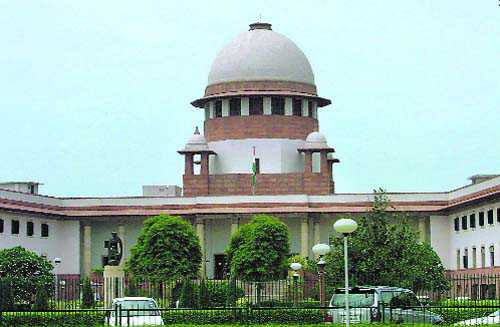Legal Correspondent
New Delhi, June 7
The Centre will explain in the Supreme Court the demerits of the 22-year-old Collegium system of appointing judges to the higher judiciary as the five-member Constitution Bench resumes its hearing tomorrow on a batch of PILs against the National Judicial Appointments Commission (NJAC).
Arguing for the government, Attorney General Mukul Rohatgi has already termed the Collegium system as illegal and unconstitutional as it amounted to having a state within a state affecting the separation of powers between the three Constitutional organs — legislature, executive and judiciary.
However, he has not gone into the details of his contention as the government had pleaded with the Bench, headed by Justice JS Khehar, to first consider referring the PILs to a larger Bench of 11 judges.
Rejecting this plea, the Bench has asked the AG to advance arguments on the merits of its contentions defending the NJAC that has replaced the Collegium. The other members of the Constitution Bench are Justices J Chelameswar, MB Lokur, Kurian Joseph and AK Goel.
The AG has pleaded that the 1993 ruling by nine judges of the SC had virtually declared that judiciary “is imperium in imperio (state within a state),” thereby upsetting the checks and balances put in place between the three Constitutional bodies through Articles 124 to 147.
Extolling the virtues of NJAC, the AG has pleaded that in quite contrast to the Collegium of judges, the judicial panel would restore the checks and balances by ensuring a healthy inter-play between the three organs and that none of them was in a position to disable the other two from discharging their constitutional functions.
Comprising the Chief Justice of India (CJI), two senior most SC judges, Union Law Minister and two eminent persons, the six-member panel would also ensure that there was no rigid separation of powers between the three constitutional bodies and none of them enjoyed primacy over the other two — the basic features of the Constitution. Further, he noted that many of the senior advocates for the PIL petitioners had written books and articles criticising the Collegium system by pointing out the drawbacks.
Unlock Exclusive Insights with The Tribune Premium
Take your experience further with Premium access.
Thought-provoking Opinions, Expert Analysis, In-depth Insights and other Member Only Benefits
Already a Member? Sign In Now










